Health secretary Matt Hancock has admitted that there is “much more to do” to drive coronavirus out of care homes, as he confirmed that a third of all those in England have suffered outbreaks.
Mr Hancock insisted that numbers of deaths were falling and that all residents and staff in English care homes would receive a Covid-19 test by early June, but added: “We have passed through the peak, but there is clearly a long way to go”.
The health secretary also signalled that the pandemic may trigger long-demanded reforms to integrate the health and care systems, saying that coronavirus has proved the importance of closer working between the sectors, whose co-operation he said had so previously been impeded by “bureaucracy”.
Download the new Independent Premium app
Sharing the full story, not just the headlines
He was speaking at the daily Downing Street coronavirus briefing shortly after the government’s scientific advisory group for emergencies (Sage) revealed that the downward trend in the crucial R measure – denoting how many people are infected by the average virus patient – had been reversed.
Sage put R at 0.7 to 1 across the UK, up from 0.4 to 0.9 the previous week and ending a sequence of declines in the level, which must remain below one in order to avoid a return to exponential growth in cases.
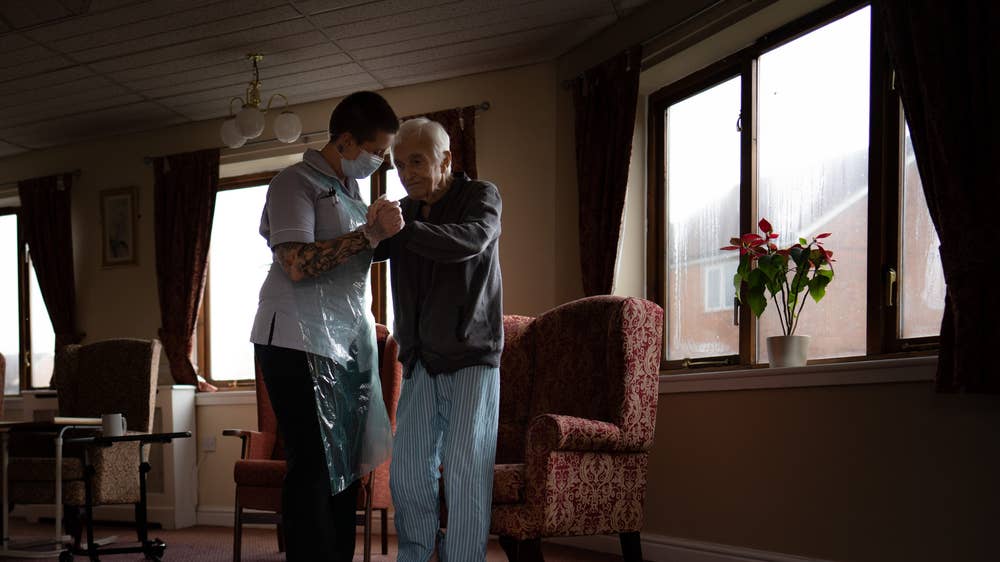
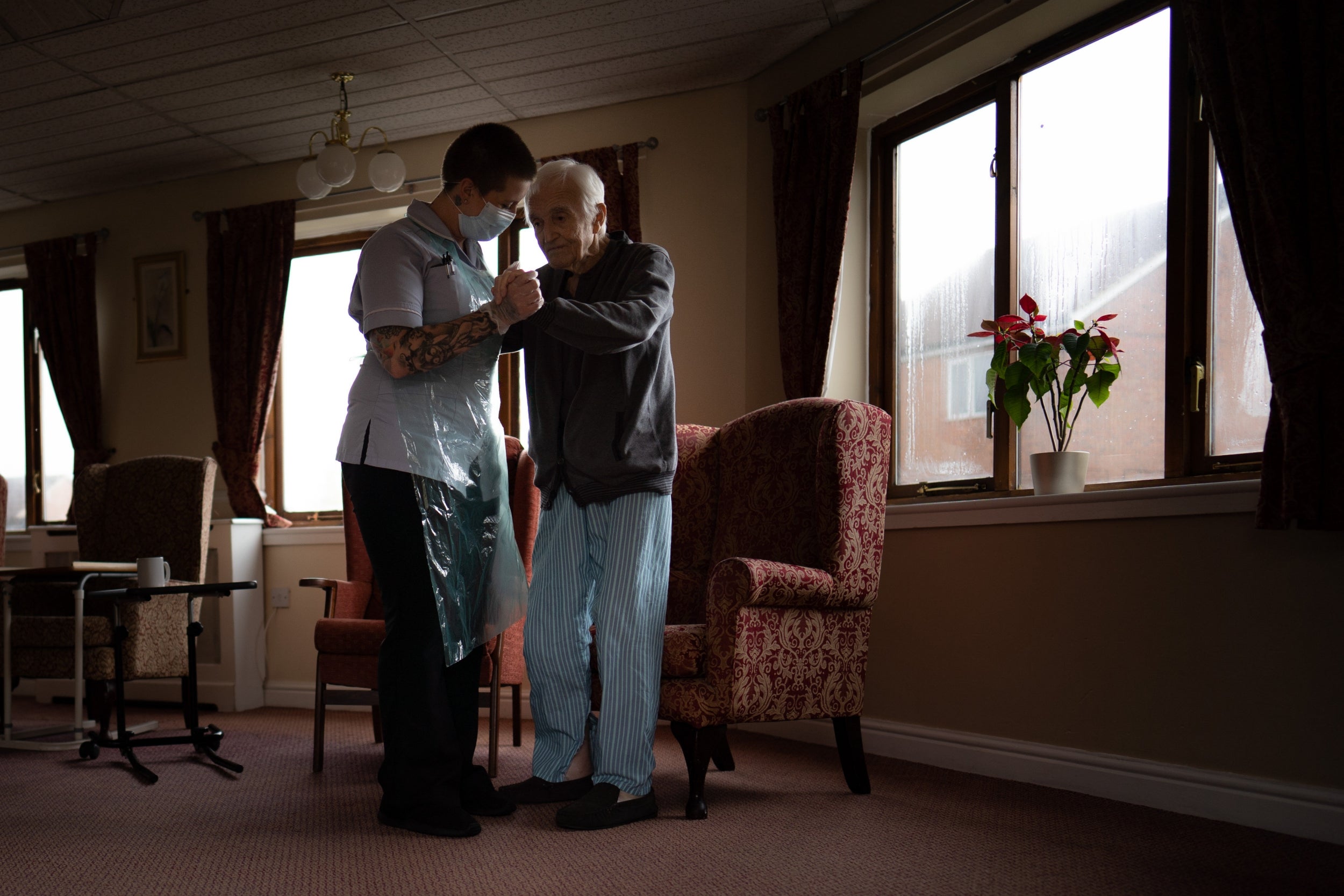
1/18
Jack Dodsley, 79, with a carer in PPE at Newfield Nursing Home
Tom Maddick/SWNS
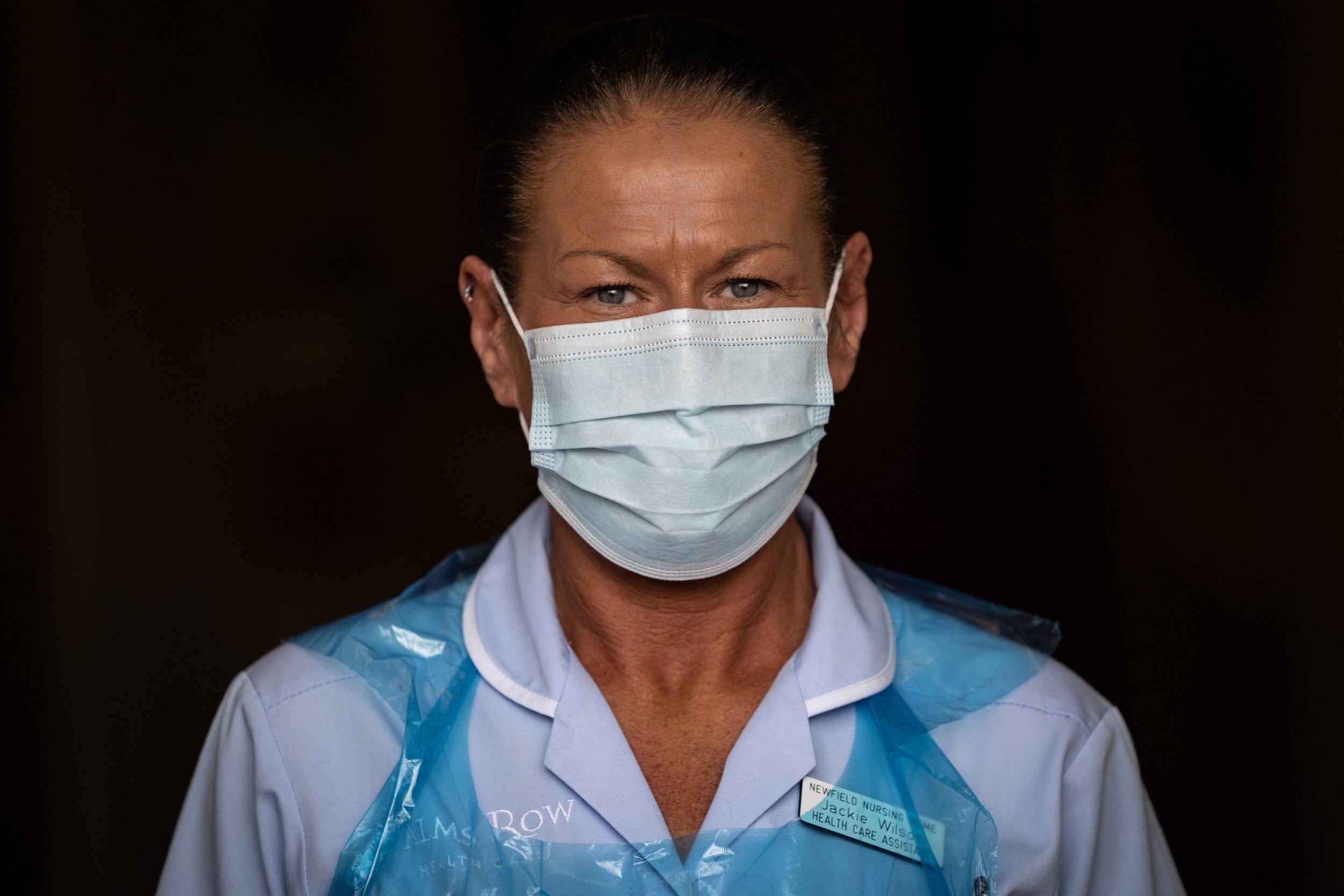
2/18
Jackie Wilson, a healthcare assistant, wearing PPE before going into rooms
Tom Maddick/SWNS
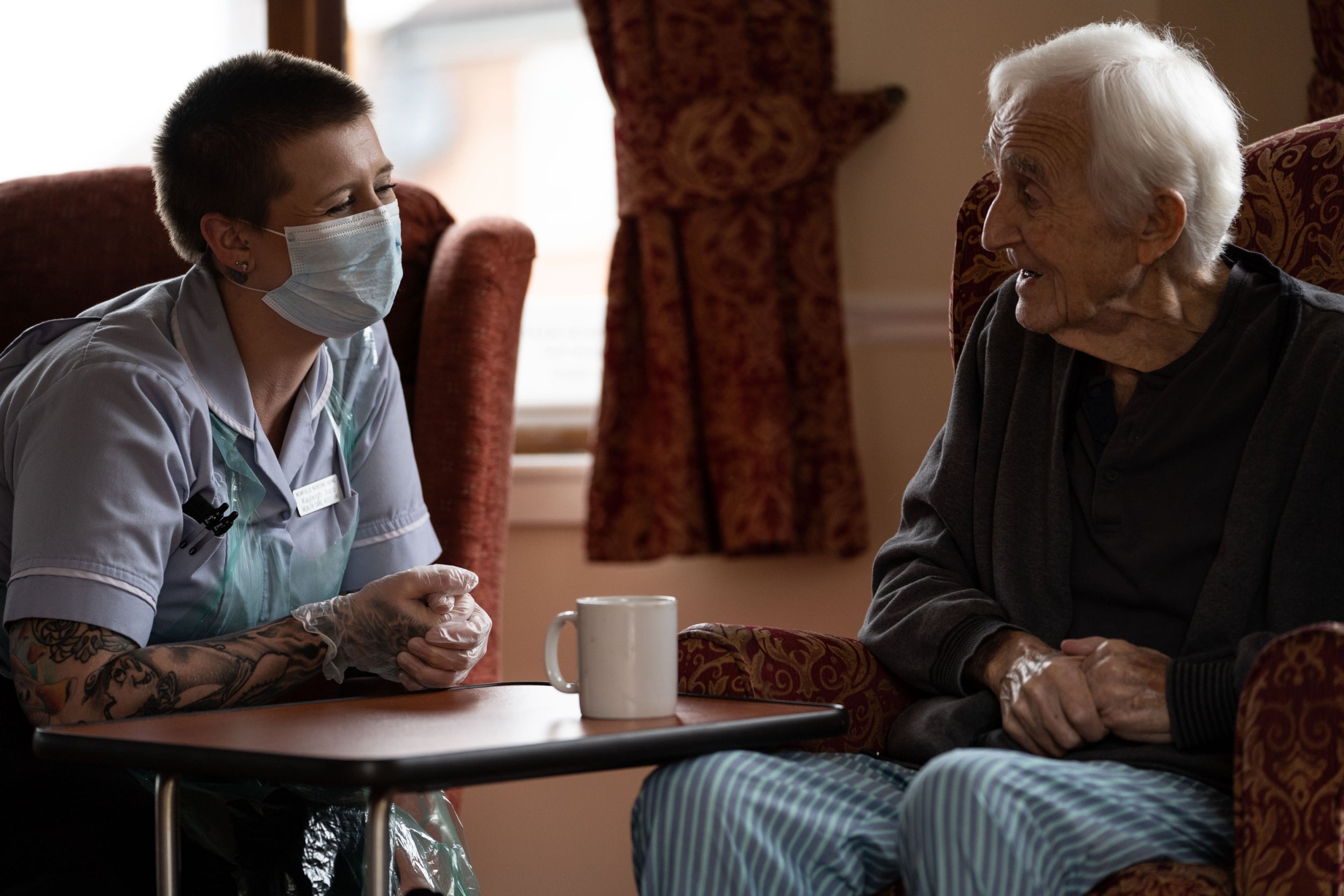
3/18
Jack Dodsley, 79, speaks to a carer at Newfield Nursing Home
Tom Maddick/SWNS
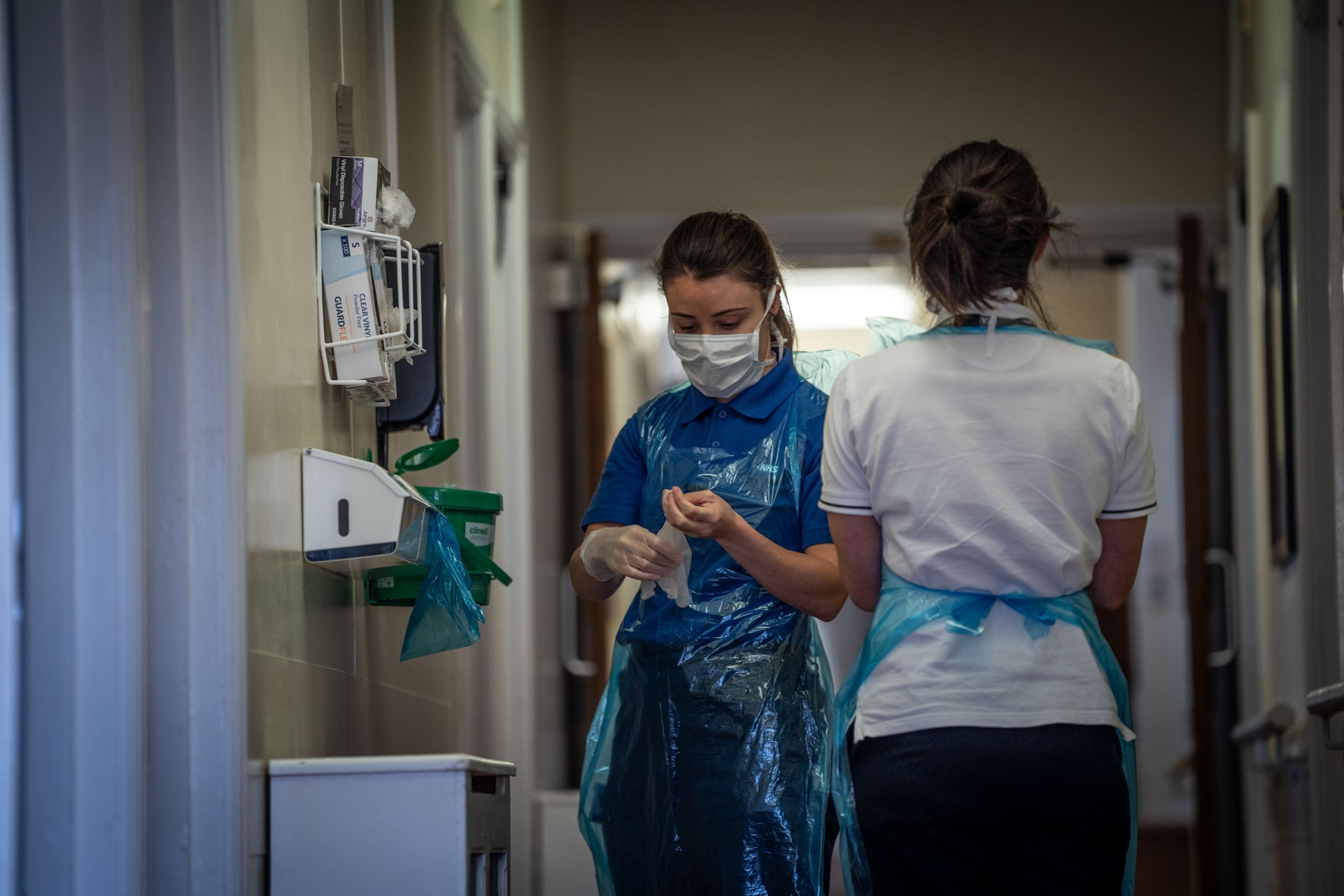
4/18
Carers working at Newfield Nursing Home
Tom Maddick/SWNS
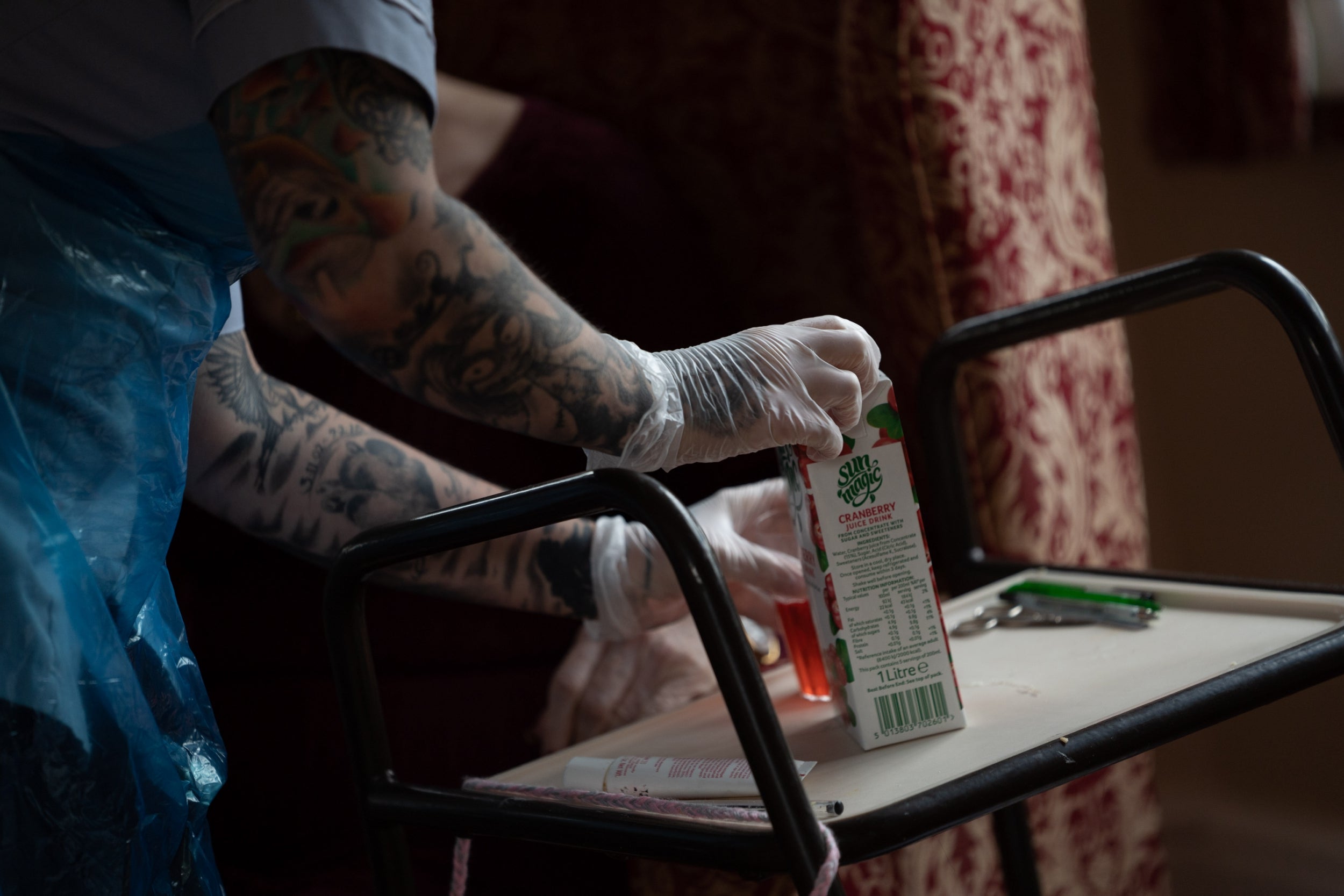
5/18
A care worker wearing PPE opens a drink carton
Tom Maddick/SWNS
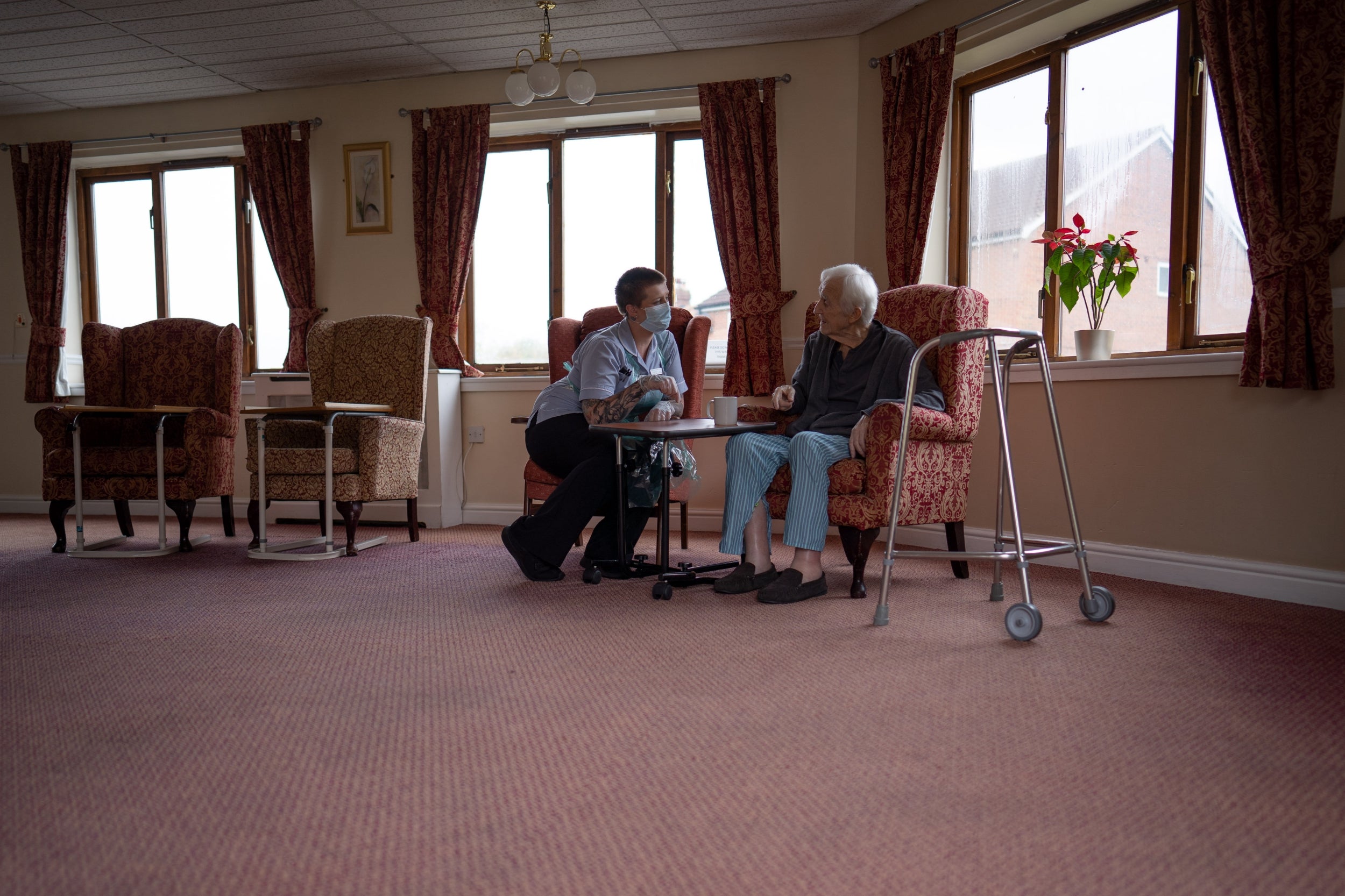
6/18
Jack Dodsley, 79, sits with a carer
Tom Maddick/SWNS
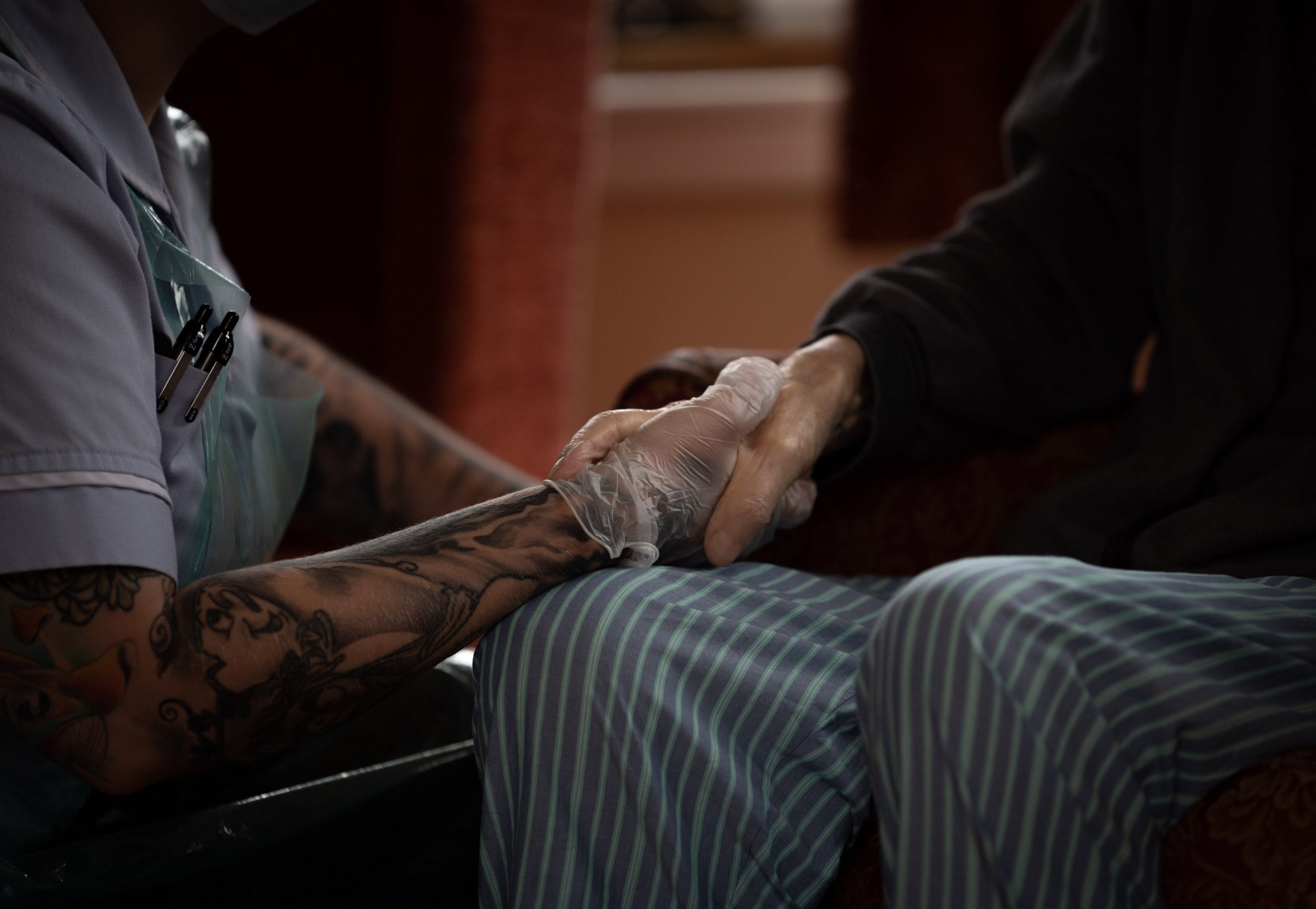
7/18
Jack Dodsley, 79, with a carer in PPE
Tom Maddick/SWNS
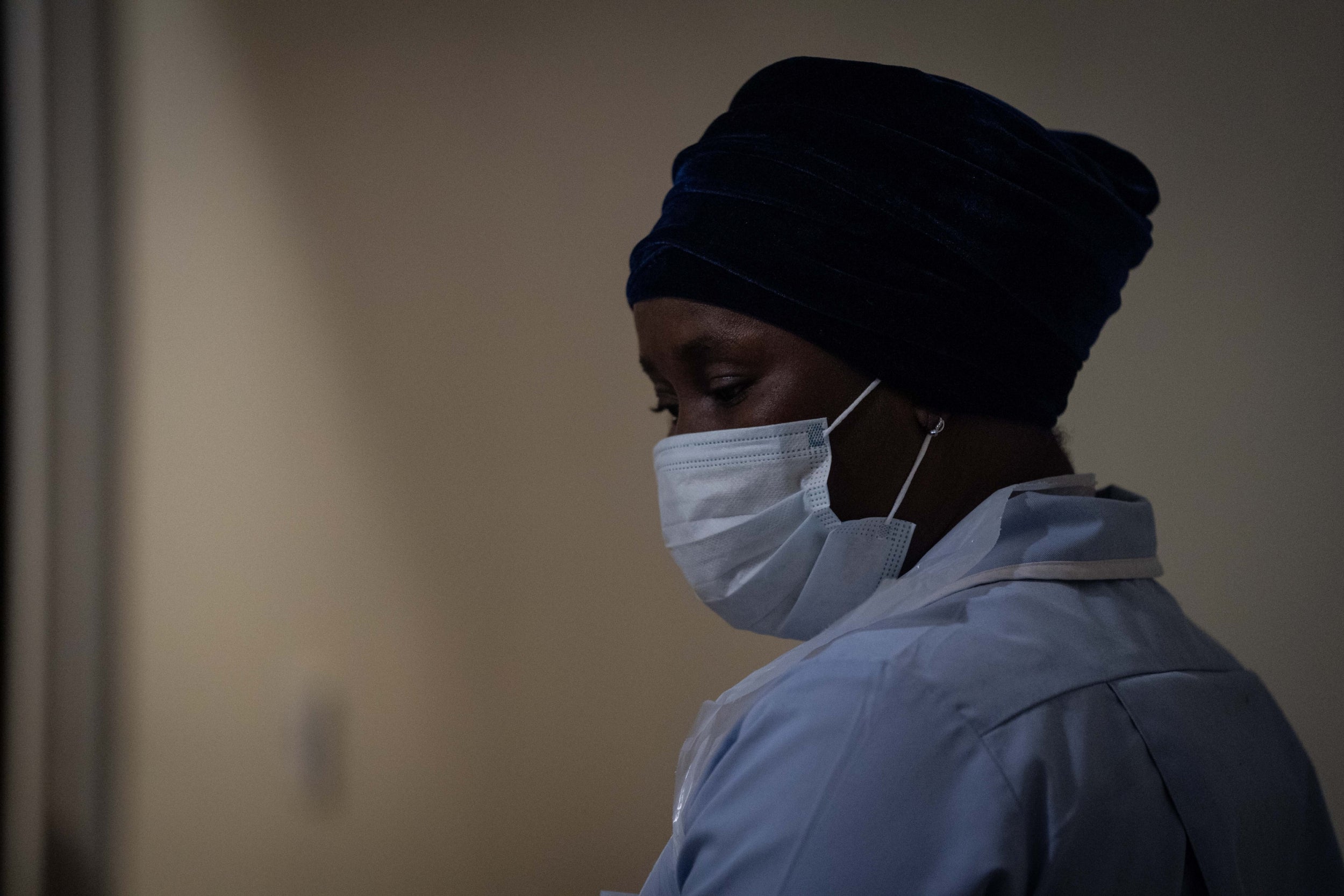
8/18
A care staff member wearing PPE
Tom Maddick/SWNS
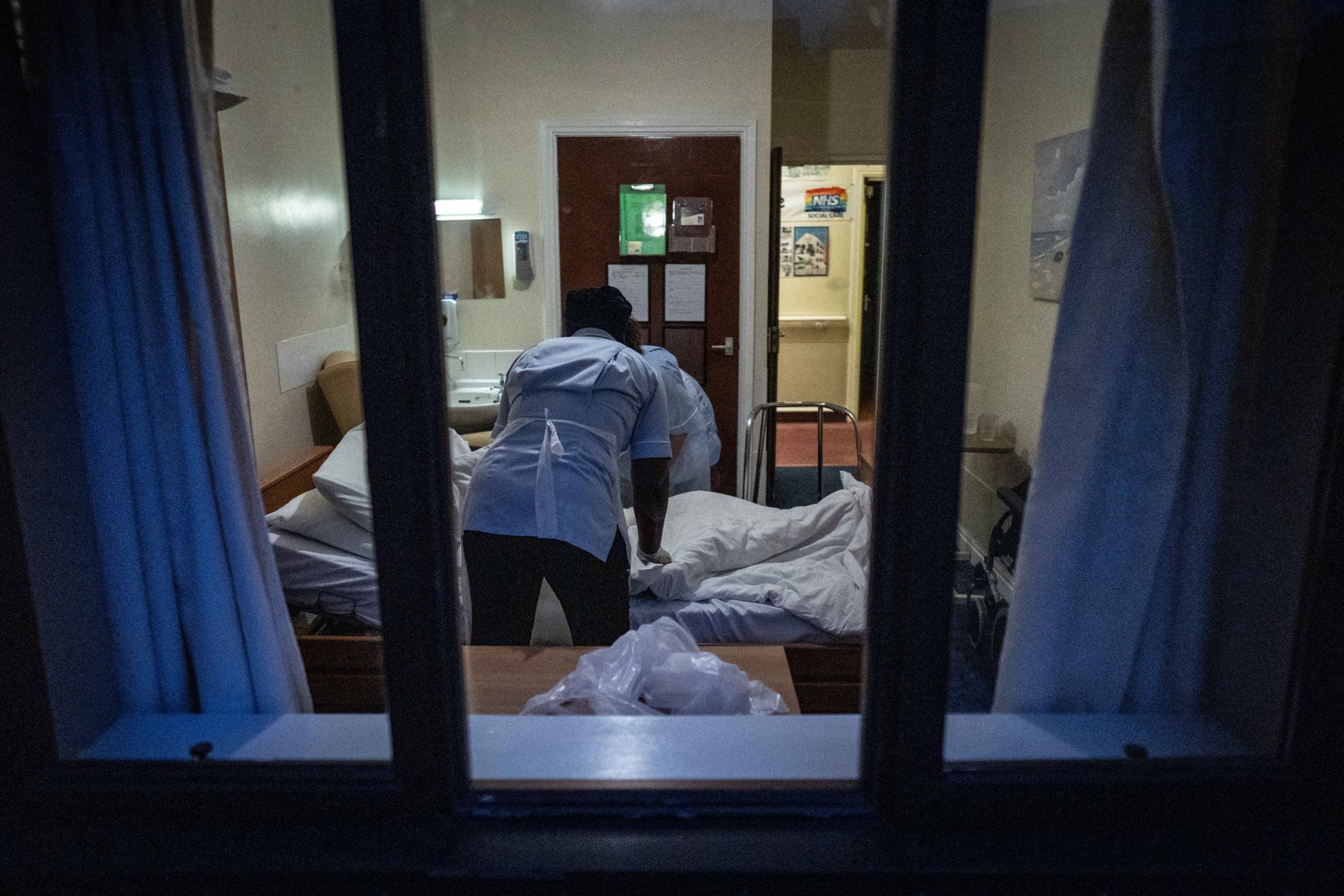
9/18
A staff member at Newfield Nursing Home looks after a resident
SWNS
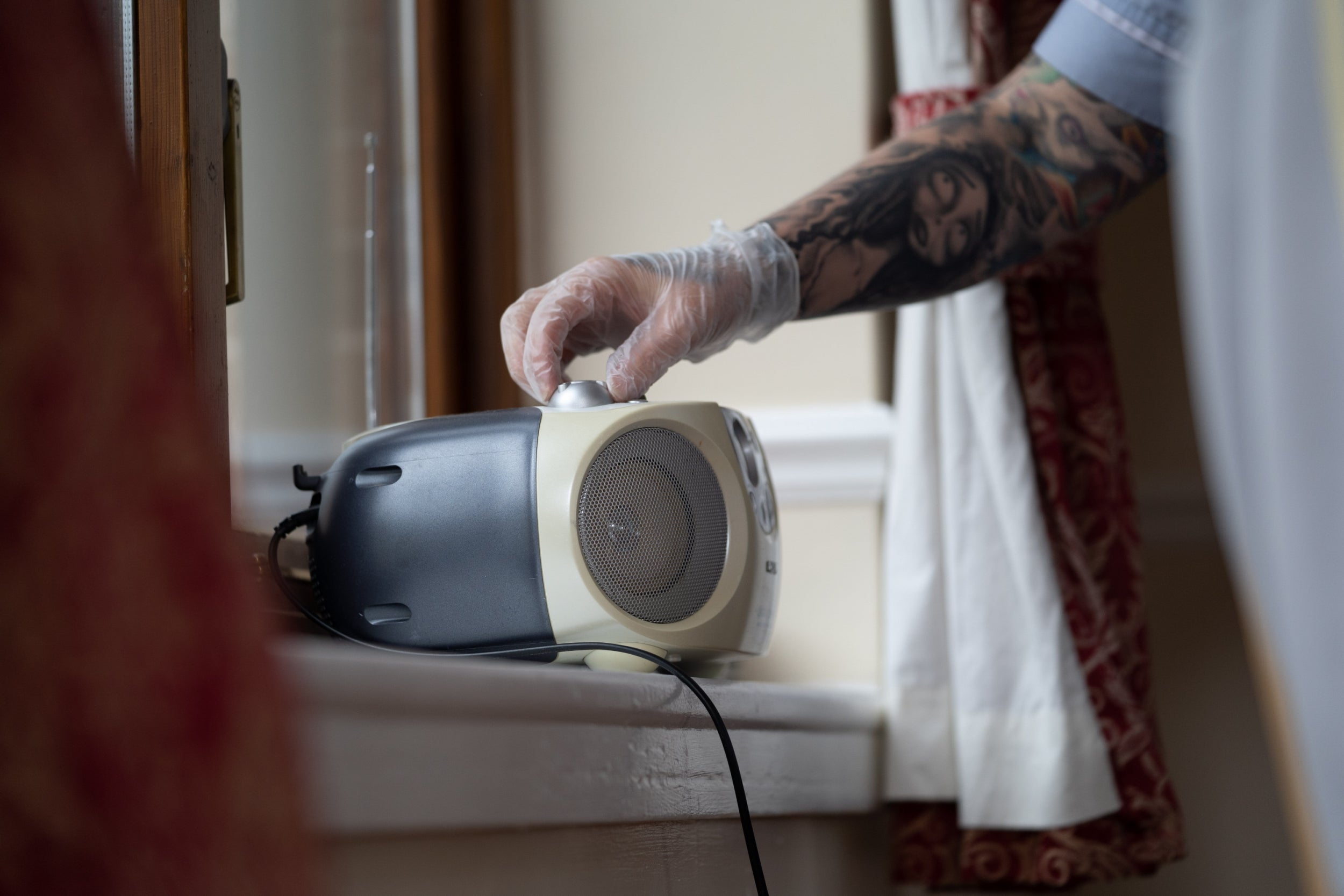
10/18
A carer wearing PPE uses a speaker
Tom Maddick/SWNS
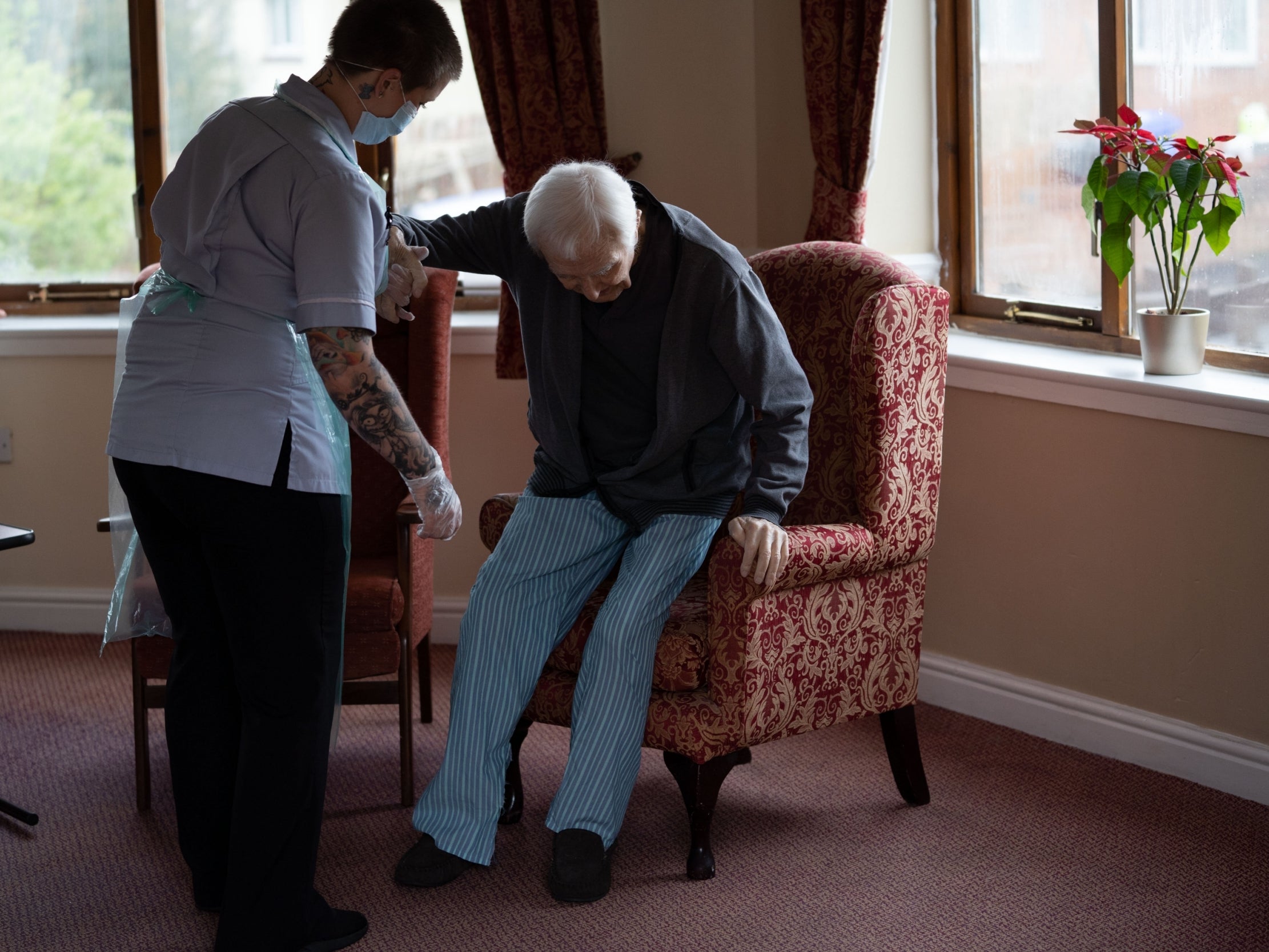
11/18
A carer helps Jack Dodsley, 79, from his chair
Tom Maddick/SWNS
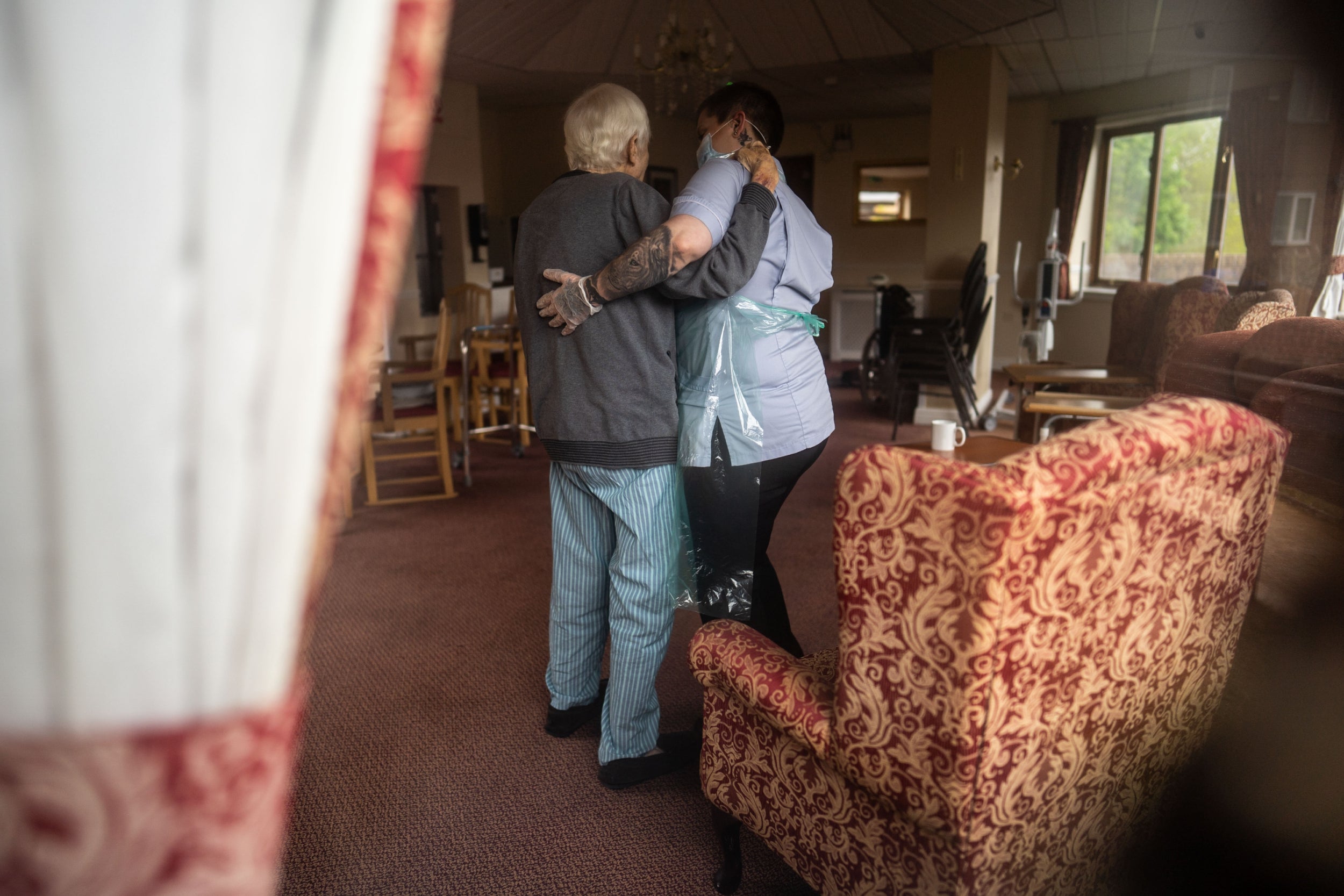
12/18
A carer wearing PPE helps Jack Dodsley, 79
Tom Maddick/SWNS
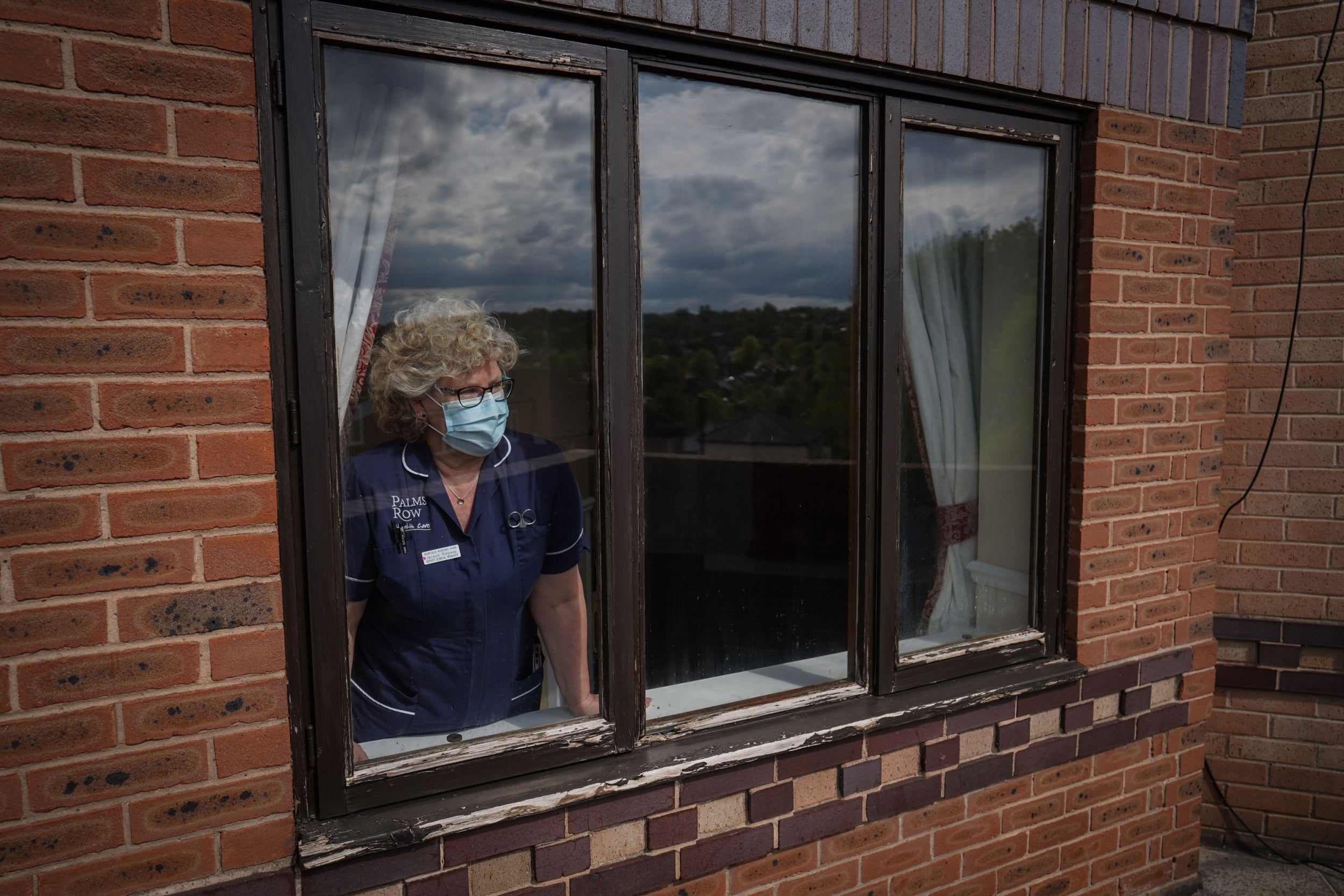
13/18
A staff member at Newfield Nursing Home
Tom Maddick/SWNS
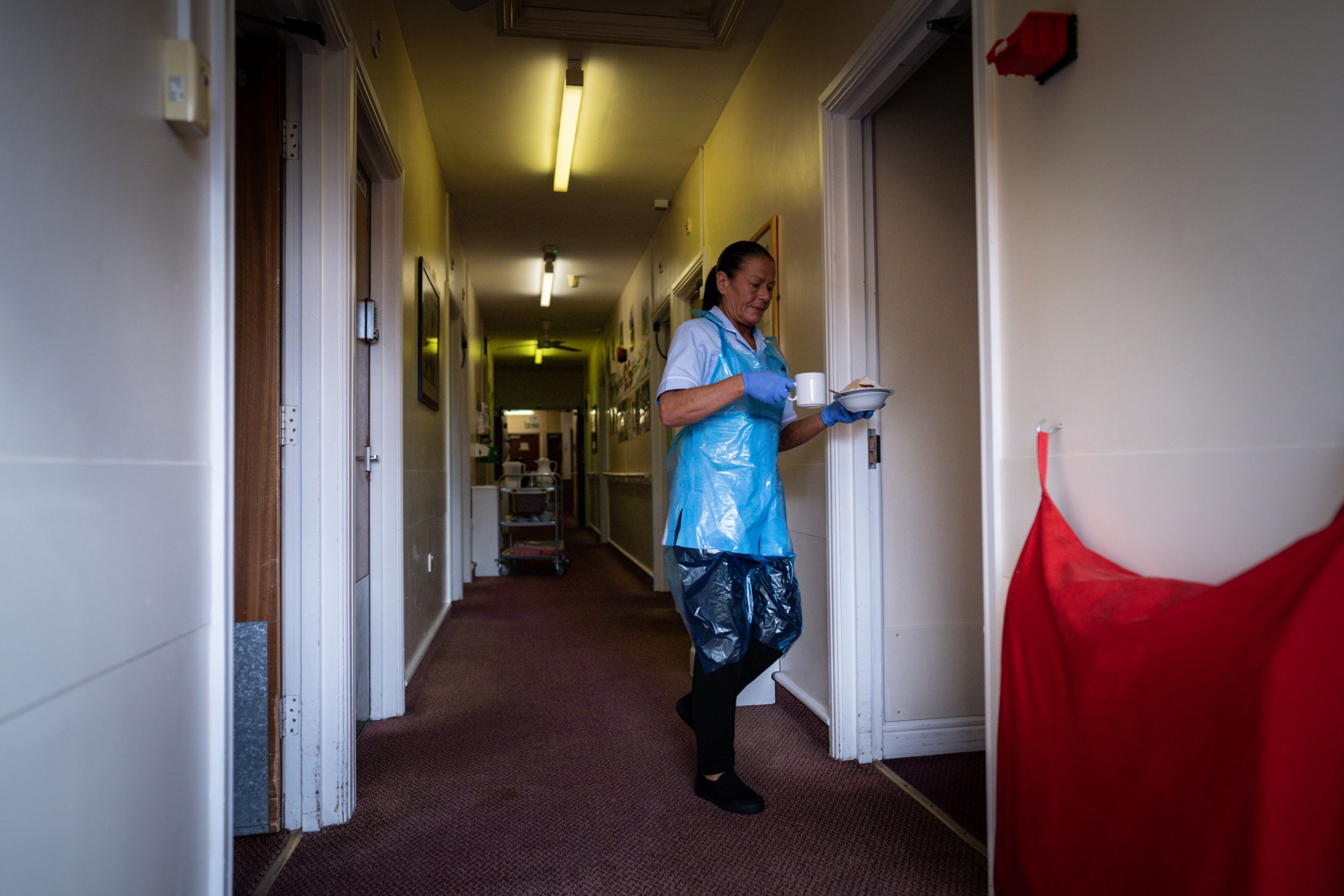
14/18
A carer brings food to a resident at Newfield Nursing Home
Tom Maddick/SWNS
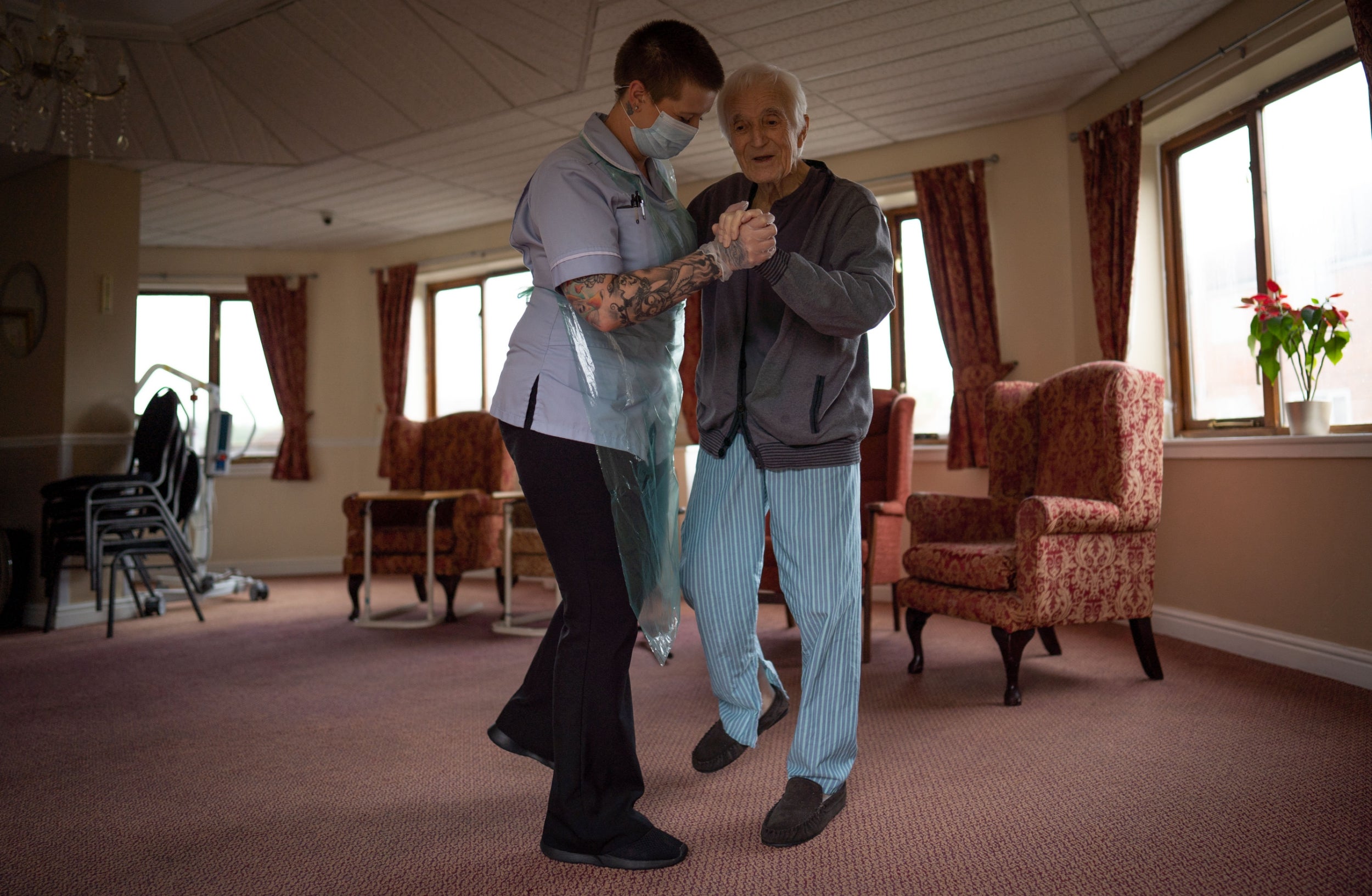
15/18
Jack Dodsley, 79, with a carer in PPE
Tom Maddick/SWNS
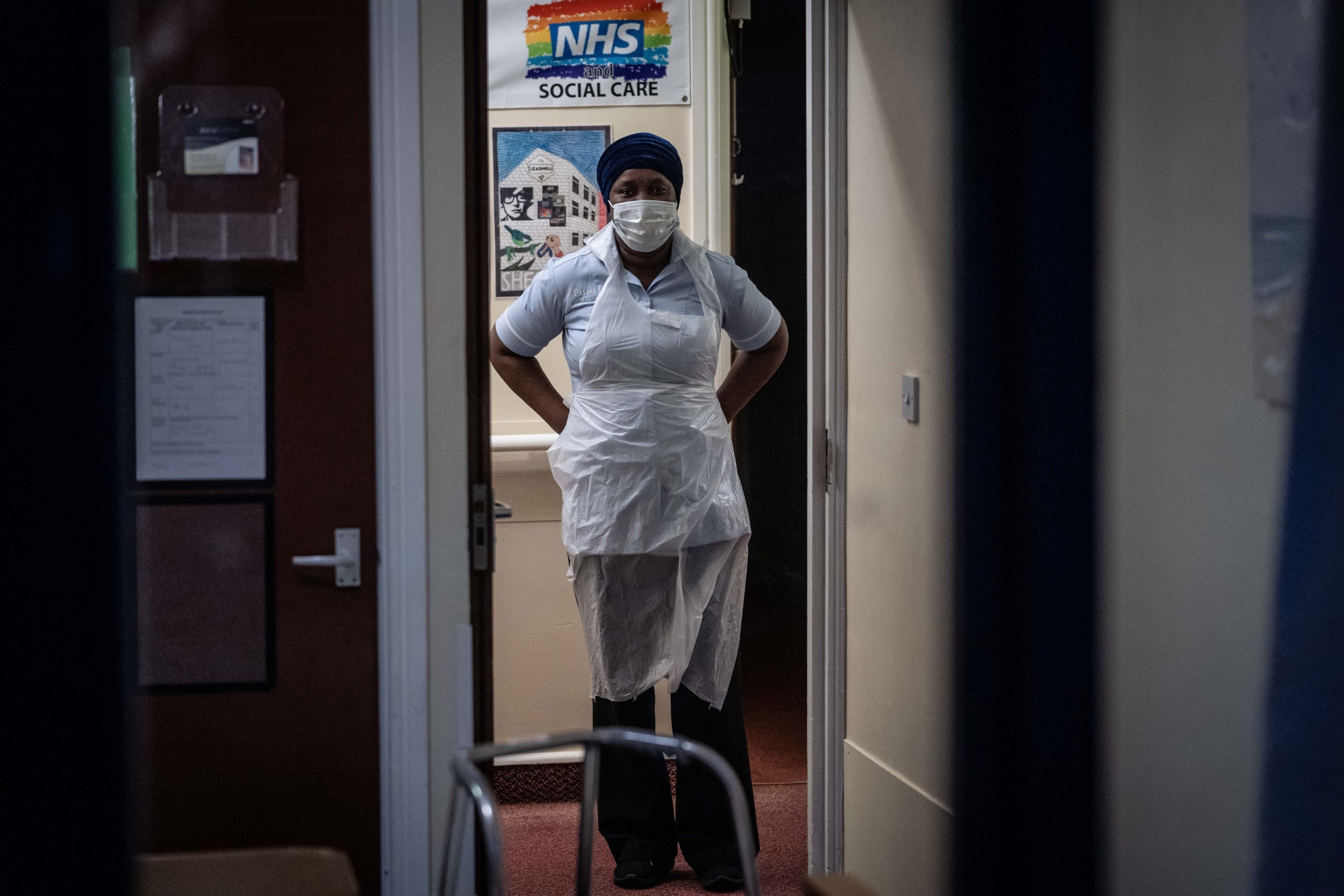
16/18
A staff member puts on PPE at Newfield Nursing Home
Tom Maddick/SWNS
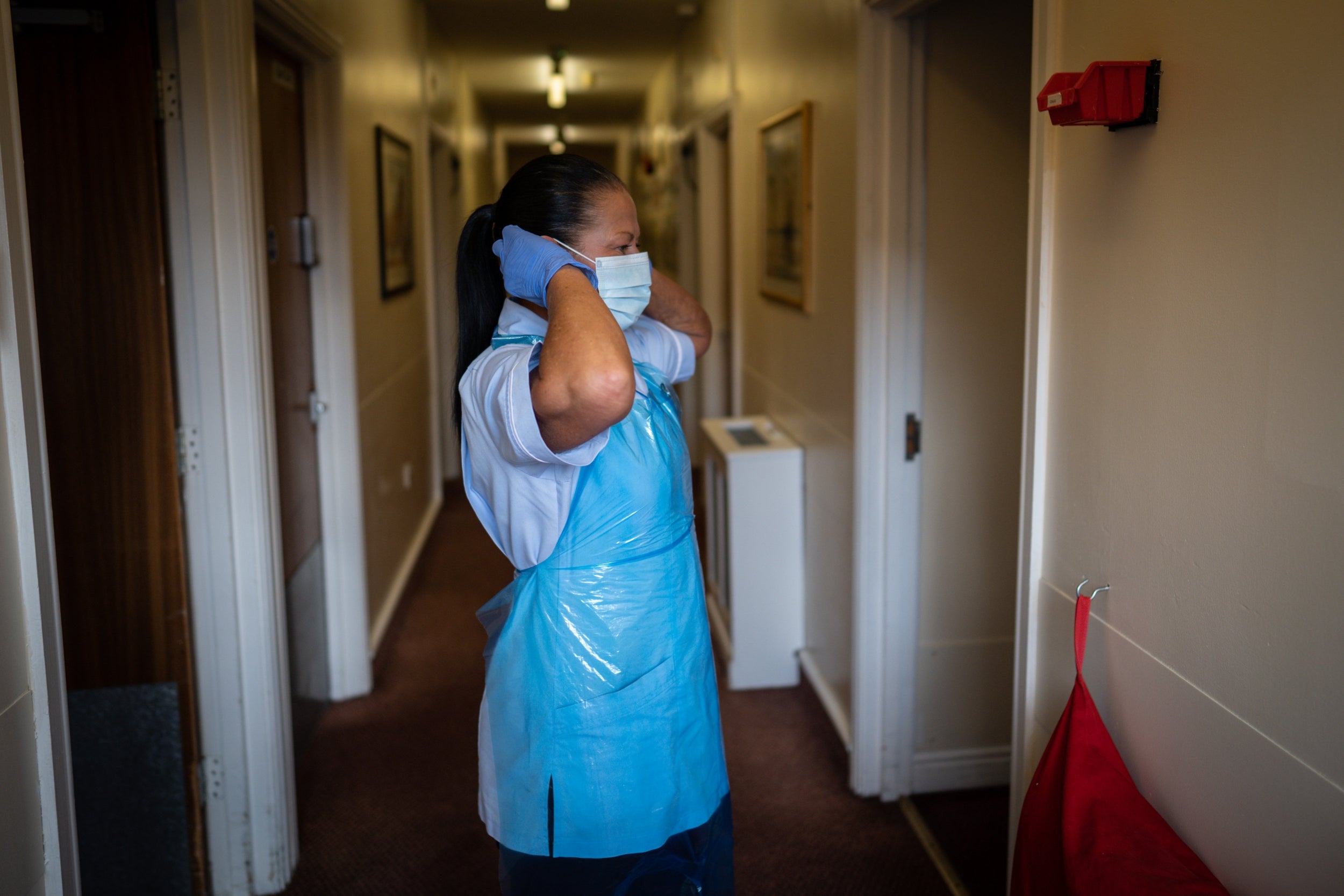
17/18
Jackie Wilson, a healthcare assistant, puts on PPE before she enters a room
SWNS
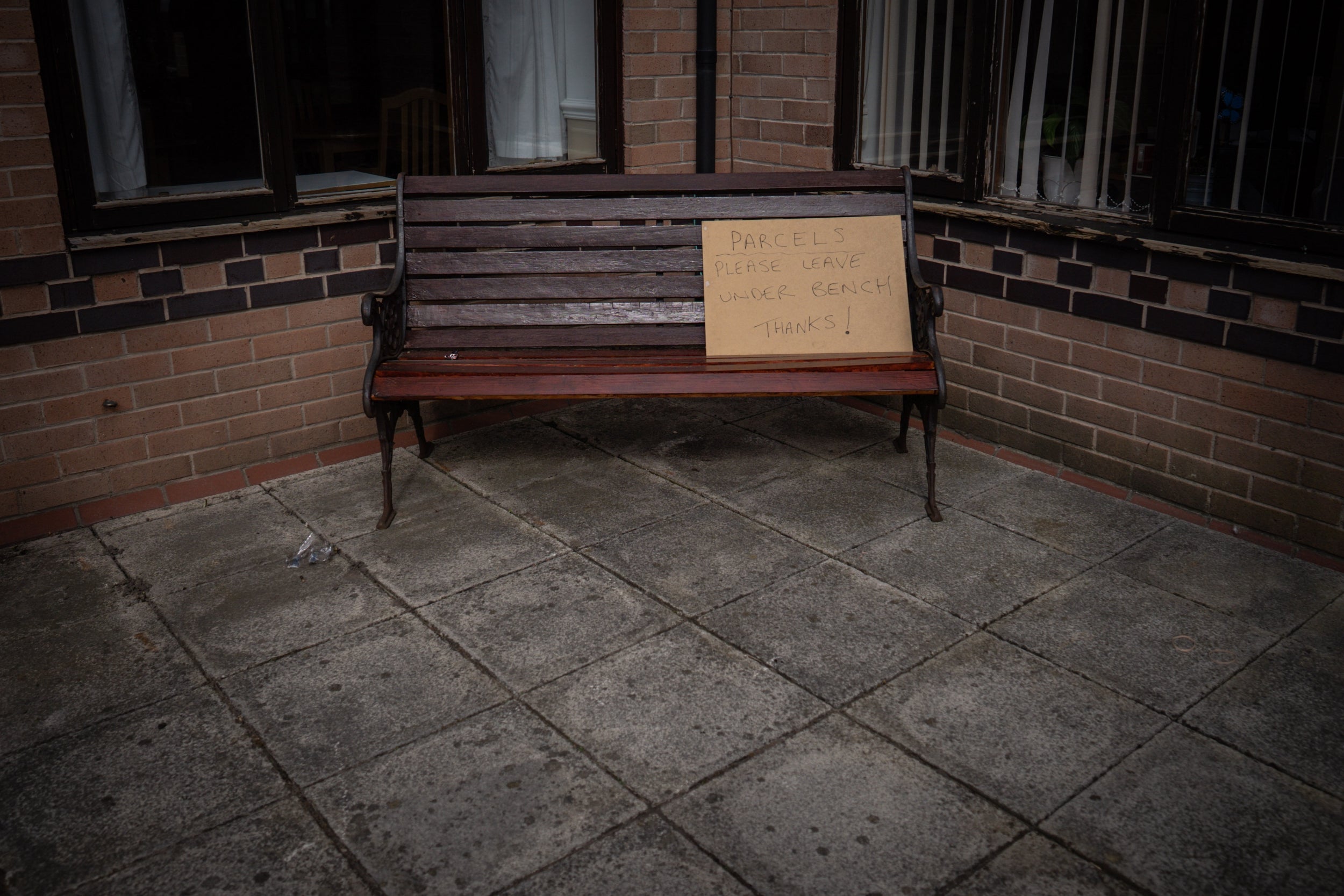
18/18
A bench at Newfield Nursing Home
Tom Maddick/SWNS

1/18
Jack Dodsley, 79, with a carer in PPE at Newfield Nursing Home
Tom Maddick/SWNS

2/18
Jackie Wilson, a healthcare assistant, wearing PPE before going into rooms
Tom Maddick/SWNS

3/18
Jack Dodsley, 79, speaks to a carer at Newfield Nursing Home
Tom Maddick/SWNS

4/18
Carers working at Newfield Nursing Home
Tom Maddick/SWNS

5/18
A care worker wearing PPE opens a drink carton
Tom Maddick/SWNS

6/18
Jack Dodsley, 79, sits with a carer
Tom Maddick/SWNS

7/18
Jack Dodsley, 79, with a carer in PPE
Tom Maddick/SWNS

8/18
A care staff member wearing PPE
Tom Maddick/SWNS

9/18
A staff member at Newfield Nursing Home looks after a resident
SWNS

10/18
A carer wearing PPE uses a speaker
Tom Maddick/SWNS

11/18
A carer helps Jack Dodsley, 79, from his chair
Tom Maddick/SWNS

12/18
A carer wearing PPE helps Jack Dodsley, 79
Tom Maddick/SWNS

13/18
A staff member at Newfield Nursing Home
Tom Maddick/SWNS

14/18
A carer brings food to a resident at Newfield Nursing Home
Tom Maddick/SWNS

15/18
Jack Dodsley, 79, with a carer in PPE
Tom Maddick/SWNS

16/18
A staff member puts on PPE at Newfield Nursing Home
Tom Maddick/SWNS

17/18
Jackie Wilson, a healthcare assistant, puts on PPE before she enters a room
SWNS

18/18
A bench at Newfield Nursing Home
Tom Maddick/SWNS
Whitehall sources stressed that the figure reflected the situation two or three weeks ago, and should not be taken as indicating a rise in cases in the wake of Wednesday’s partial lifting of lockdown measures in England.
And Mr Hancock insisted that the uptick in the measure was “not likely to be a problem” as it was still not above one.
“We are constantly keeping the R under review,” said the health secretary. “We don’t think that it is above one. So that meets that test.
“It is an incredibly important figure for policymakers but it is one data point to look at alongside the level of new cases.”
Despite official figures showing 22,000 “excess deaths” in care homes in April – of which just over 8,000 are officially recorded as coronavirus-related – Mr Hancock insisted that the government had “tried to throw a protective ring around care homes” throughout the outbreak.
The latest news on Brexit, politics and beyond direct to your inbox
“We sent out our first advice in February and as the virus grew we strengthened it throughout,” he said. “We’ve made sure that care homes have the resources they need. This week we’ve made a further £600 million available to care homes in England on top of £3.2 billion we made available in March and April.”
He said care homes were now getting “the most intense support and scrutiny” they have ever received, with named clinical leads for each premises and daily reviews by local authorities of the situation on the ground.
The latest official data from Public Health England shows a total of more than 5,500 homes – or 35 per cent – in England have now been affected, with 400 more suffering their first infection in past seven days.
But Mr Hancock said: “Sixty-four per cent of care homes have no Covid cases. The number reporting their first case has fallen from a daily peak of 219 to 59. Since the peak, the number of Covid-19 deaths of people in care homes has halved.”
But he added: “While this is progress, there is so much more to do. And this crisis has also demonstrated the imperative for reform and shown the importance of long-standing calls for closer working between health and social care. It’s acted as a catalyst for integration and shown the benefits of it on the ground.”
The health secretary also vowed to fight to ensure that NHS nurses are “rewarded” for their efforts during the outbreak, which has claimed the lives of more than 100 healthcare workers.
Challenged by a nurse who asked whether pay would be frozen as part of the government’s plan to pay down the debt incurred because of the pandemic, Mr Hancock said that nursing is a “highly skilled profession” which “deserves decent pay”.
“We put up nurses’ pay last month and in fact last year we had the biggest rise in pay, especially for nurses when they were starting their career, the lowest paid nurses got a pay rise, very significant, of over 15%,” he said.
“There has been a significant pay rise for nurses and I think one of the things that the crisis has shown is just how much the nation values our staff across the health and care system, including nurses.
“And when it comes to how we reward people for their efforts in this crisis what I can tell you is that as the Health Secretary I will be making sure that we fight to have that fair reward.”
Welcoming the support being offered to councils with responsibilities for care homes, the chair of the Local Government Association’s Community Wellbeing Board, Ian Hudspeth, said: “Social care is the frontline in the battle against this dreadful disease. Councils will be reviewing their existing plans to continue supporting them and ensure those who rely on and work in social care are able to stay safe and well.”
But he added: “Other aspects of care homes which councils do not have direct control over, such as the long-term future of the care home market, need to be met by government.
“In particular, we know that some of these new measures will need ongoing funding and resources beyond what has already been made available to councils and providers. It is good news that government has committed to working with councils on future funding support, this needs to be made available as soon as possible to help meet increasing demand and costs.”



